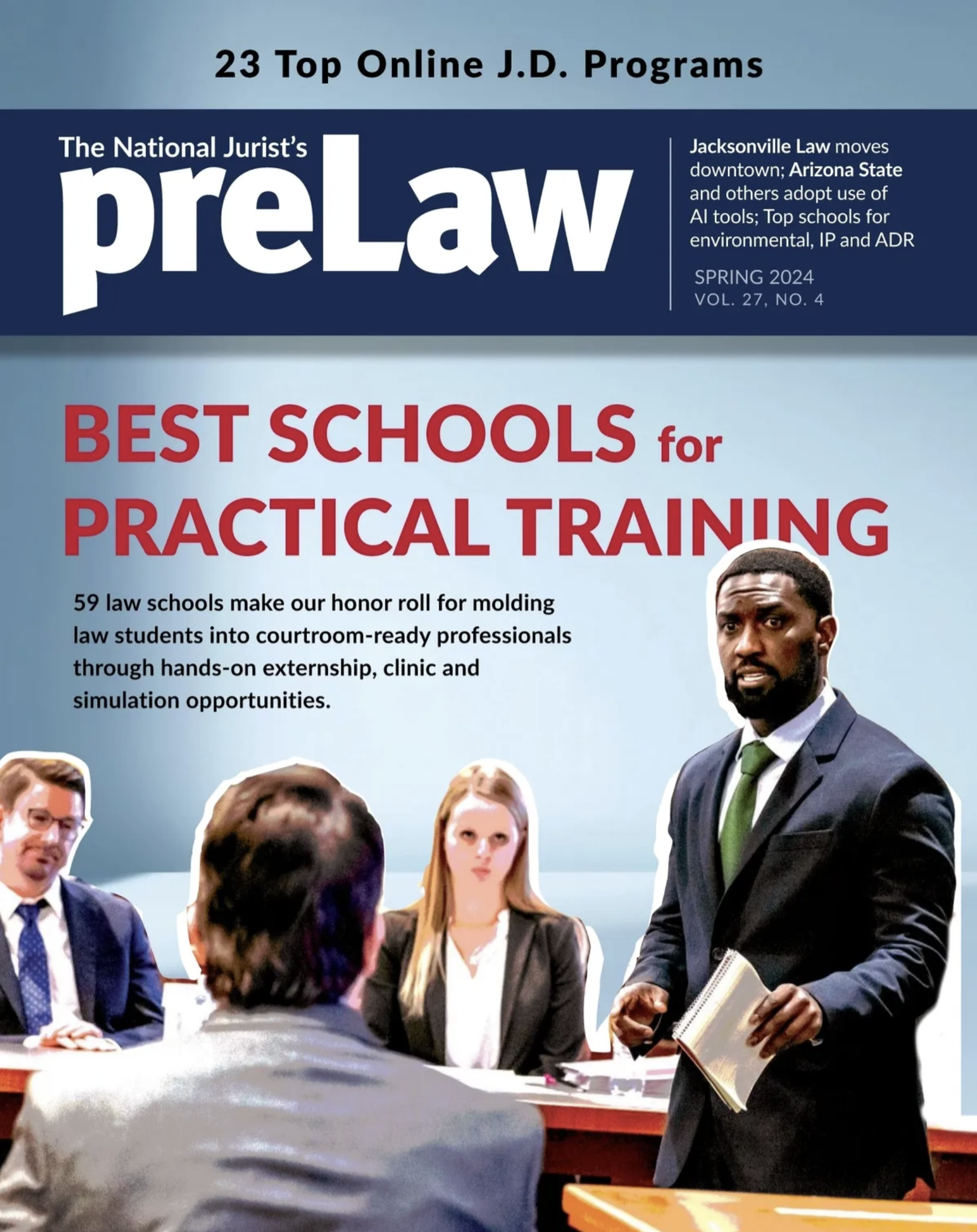Sixty law school deans have criticized the American Bar Association’s proposal to make admissions tests optional on the grounds it will hurt diversity. In May, an ABA council drafted a proposed revision to eliminate a test requirement and opened it up for commentary.
The 60 deans responded to that request for comments with a letter that says optional entrance exams would cause schools to rely more on GPA and other criteria, which could be “detrimental” to diversity among law students and the legal profession. It also argues that a greater reliance on these factors increases the possibility of more bias in the acceptance process.
“Without the LSAT as a factor, law schools may be less willing to take a chance on students who do not perform well on GPA or other metrics because they worked to put themselves through school, had to care for family, or for other reasons, but would enhance the diversity of our institutions and ultimately the profession,” the letter states. “Students who struggle early in college, which sometimes happens with first-generation college students, may have lower initial grades and thus overall lower grade point averages. Test scores may help these students, both in determining which schools they should consider and in gaining admission.”
The LSAT, an entrance exam designed to predict first-year grades, has been administered by the Law School Admissions Council for more than 50 years. The council plays an integral role in law school admissions and has expressed caution about a change.
“Such tests are tools and, in the case of the LSAT, one that can help predict whether students are capable of succeeding in law school and bringing in a class that is diverse in multiple dimensions, including race and socioeconomic status,” the letter states.
Many of the comments submitted to the ABA council expressed the need for more research before adopting the change.
Another letter, written by Olympia Durhart and Allyson Gold on behalf of The Society of American Law Teachers, urges that the council collect and review data regarding the impact the change will have on minoritized communities. They also recommend that law schools should be encouraged to “act as laboratories for admissions strategy experimentation to attack the larger structural barriers to the profession.”
“A more measured interim approach can help ensure that the collateral consequences of a test-optional standard do not harm the very people they intend to help,” read the letter from the society.
More than 100 comments were submitted, 51 in favor of the approval and 49 opposed. Like the deans’ letter, several of these comments had multiple signatures.
Sept. 1 was the deadline for comments, now the council is set to decide if it wants to approve or revise the proposed changes. Other comments submitted about the changes can be found here.








Comments (5)
The Deans who believe that the LSAT will even the playing field for students from economically and educationally disadvantaged backgrounds whose GPA metrics aren’t reflective of their potential for success are ignoring the fact that the LSAT itself discriminates against the same group of economically educationally disadvantaged applicants. Who’s got a better chance of obtaining a strong LSAT score, an applicant from a moderately affluent background who can afford a highly skilled private tutor or an expensive course or an applicant from an economically deprived background who was too busy working and too poor to afford any LSAT preparation?
Exactly. The LSAT is difficult to learn, but the methods can be learned with tutoring. All of the tutoring courses for the LSAT are extremely costly for the underprivileged prospective student. It is a huge advantage to the wealthy.
Not trying to bite off too much at once, but requiring students to have a completely unrelated BA degree before they can enter law school, unlikely almost every other nation, is also a huge and unnecessary bias for wealth.
I agree completely! If the LSAT requirement leveled the playing field for minorities and those with diverse socioeconomic backgrounds, then there would not be a lack of balanced representation of those groups in the legal field to begin with. Interpretation: The current system is not working!
If these Deans believe that the LSAT is essential to their admissions process, they are free to continue using it under this proposed rule as they have always done. They are free to rely solely on LSAT scores as their admissions criterion if they so choose. No one is proposing that anything be taken away from them. Why do they want to mandate that schools who do not believe the LSAT is a helpful measure must continue using it? All of the elite law schools in the country effectively dropped the LSAT requirement, by adding the GRE, several years ago. The sky did not fall.
The idea that socioeconomically disadvantaged applicants benefit from the LSAT in the admissions process is only true if they want to go around saying it. There is no data that backs up that claims. All the data highly correlates wealth with LSAT score. Possibly because wealthier prospective students can afford costly private tutoring in an esoteric test which is unlike any students are likely to have encountered in the past.
I took the LSAT so long ago that I do not recall anything about it. My recollection is that the test assumed no prior legal knowledge on the part of the person taking the test. When I did wind up in law school (nights and working a full time job days) I found that my classmates came from all sorts of disciplines, airline pilots, business owners, police officers, and all in between. My question is this: say they get rid of what is, I am led to believe, a good predictor of future academic/career success. What happens when the graduates (and grading on law school tests is, or was, blind) face the bar exam. Will that be done away with also?
As to those expensive tutoring courses, I do not know about that, but I recall buying and reading a book I bought on LSAT preparation, and it cost, at the time maybe seven Dollars or so. Having practiced law for over forty years, I have had a lot of experience with “minority” attorneys and judges; in my experience they have, for the most part been super sharp and effective